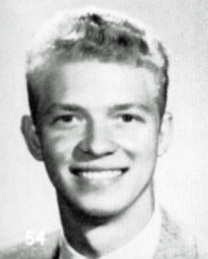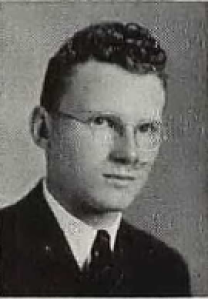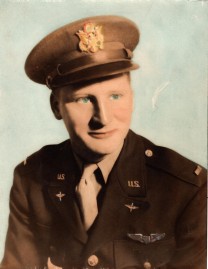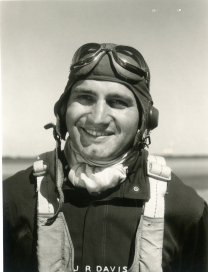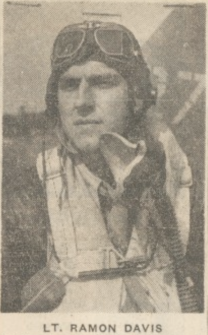AMES, Iowa – Ronald Edgar Riede, who studied aerospace engineering at Iowa State before becoming a decorated helicopter pilot during the Vietnam War, is among five veterans to be recognized during Iowa State’s annual Gold Star Hall Ceremony on Monday, Nov. 7.
Ronald Edgar Riede was born on Jan. 5, 1944, in St. Louis, Missouri. Known simply as “Ron,” he showed an early interest in airplanes and engineering. Even as a child, Riede could name every kind of plane that passed over his home. In school, he was ahead of his classmates to such a degree that he skipped the fifth grade and moved directly to sixth grade. He played little league baseball and the trumpet. After graduating high school, he enrolled at Iowa State, passing up scholarships at other schools because he was drawn by the strength of Iowa State’s aerospace engineering program.
At Iowa State, Riede roomed in Helser Hall and was a member of Stalker house. Classmates remember him as a hardworking student who would always help underclassmen with their homework. While Riede did not participate in intramurals along with his housemates, he often supported them from the sidelines. And, unlike most of his other classmates, Riede was not from Iowa. On the weekends when others were back home helping on the farm or visiting their families, he remained at school studying. Toward the end of his time at Iowa State, Riede confided in others that he was not sure he wanted to be chained to a desk for the rest of his life and questioned whether engineering was the right career path for him. Ron graduated Iowa State in the spring of 1966 and joined the Marine Corps Reserve.
Riede entered flight school, hoping to become a jet pilot. He performed at the top of his class, but when it came time to choose what he wanted to fly, Riede learned there were no fighter jet spots available in his class. Instead, he became a helicopter pilot, flying Huey gunships.
Riede was deployed to Quang Tri Province, Vietnam, with the 1st Marine Aircraft Wing. Being a helicopter pilot in Vietnam was one of the most dangerous jobs in the military at the time. The military used 12,000 helicopters in the Vietnam War. Over 5,000, or nearly half, were destroyed. The average lifespan of a pilot in Riede’s position was 30 days. Riede earned the Distinguished Flying Cross for flying in a sortie where enemy fire brought down several of his wingmen. Disregarding his personal safety, Riede landed his helicopter and instructed his machine gunners to provide covering fire as he dragged his comrades out of the wreckage. Despite his heroic efforts, none of his fellow Marines survived.
On April 18, 1968, Riede copiloted a Huey gunship tasked with escorting two medical helicopters evacuating injured marines back to base. Picking up the wounded went smoothly, but, as they were flying back down a valley, the gunships and the medical helicopters became separated in the clouds. When a break in the clouds occurred, the lead medical helicopter suddenly came down on top of Riede’s helicopter and both crashed. Twelve men, including Riede, died in the collision. In a letter to Riede’s family, Riede’s commanding officer said, “Ron was one of the finest Marine officers I had ever known. His exemplary conduct, leadership, and singular determination to do every job well were qualities that all of us respected.”
Riede’s eligibility to be named in the Gold Star Hall went unrecognized for years until Bill Evans, a former Helser Hall housemate and fellow Vietnam Marine veteran, spoke up. Because of Evans, Riede’s name was added to the Gold Star Hall this summer so future Cyclones can remember the life and sacrifices of Ronald Edgar Riede.
